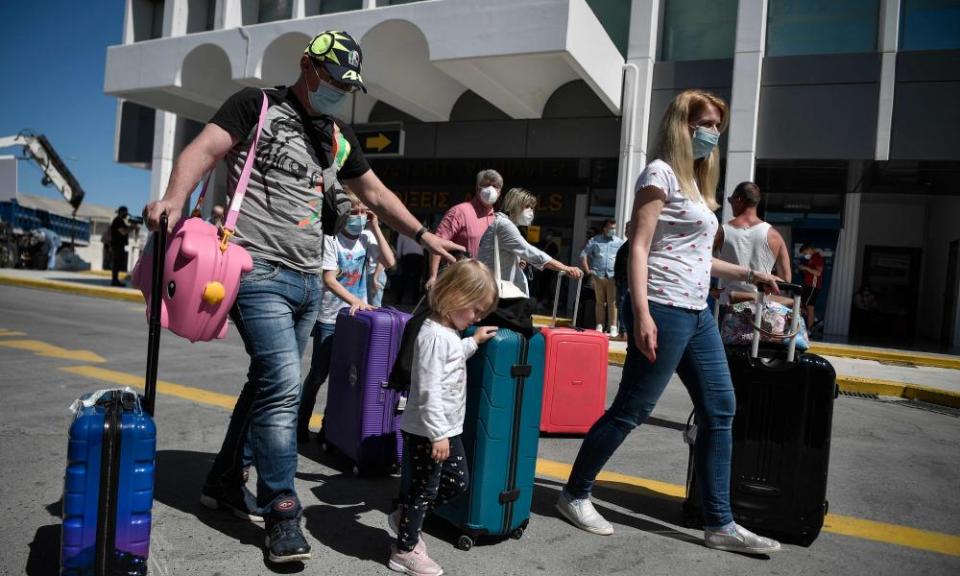Germans told to be patient as chemists start Covid vaccine pass scheme

Fully vaccinated Germans have been urged not to storm the country’s pharmacies in the rush to obtain a Covid digital vaccination pass made available in thousands of stores on Monday.
The “Digitale Impfpass” or digital vaccination pass, is the official document to be used as part of the the European Union vaccine certificate scheme to facilitate travel across the bloc, which the European parliament agreed last month.
The Association of Pharmacists issued an appeal to people to be patient, admitting the system was new and untried.
“We ask citizens not to storm the chemists on Monday morning,” the association said in a statement.
A website, Mein-Apothekenmanager.de (my pharmacy manager), which was advertised across German media as the best place to locate a chemist offering the service, crashed in the morning, unable to cope with demand.
However, by around 11am, a spokesman for the Association of Pharmacists said 140,000 certificates had been issued by the approximately 13,000 chemists – more than two-thirds of those across the country – involved.
The pass displays a QR – quick response – code given to everyone who has been vaccinated, either directly following a vaccination, or later via post. The QR code provides the necessary connection with an IBM European data bank storing the vaccine certificates.
The pass was originally planned as an EU-wide travel document but, due to differences between countries over how to regulate travel restrictions, quarantine rules and test obligations, the plans were modified.
Chemists issuing the passes are to receive between €2 and €18 in compensation for the service, and while there is no fee to the individual, the costs will be picked up by the taxpayer.
In Berlin and Hamburg queues were reported outside some pharmacies even before the scheme opened. Some pharmacists reported having problems registering with the system, and had to turn people away. But the health ministry insisted the issues were just teething problems.
The digital pass can be stored in a CovPass app on a mobile phone, and displayed like a boarding pass. By the end of the this month it should be possible to upload it onto a pre-existing Covid Warn app, which has the added advantage of being able to track and track people who have tested positive.
But Jens Spahn, the health minister, has been at pains to stress that the Digitale Impfpass will not replace the 60-year-old yellow paper international vaccination book, which will remain valid, but will be a “simple and voluntary addition to it”.
However the ease with which the paper booklet can be lost, mislaid, destroyed in the wash, or forged, has led to hopes that it will gradually replace the booklet, particularly as Germany enters the thick of the holiday season.
Already numerous cases of forged passes and gangs behind their creation and distribution, have been uncovered.
The government also hopes once it is up and running, the scheme and the additional freedom it will give people, will encourage those still hesitant about getting vaccinated to finally do so.
By Monday 48% of Germans had received at least one dose of vaccine, while 26% had been fully vaccinated.

 Yahoo Finance
Yahoo Finance 